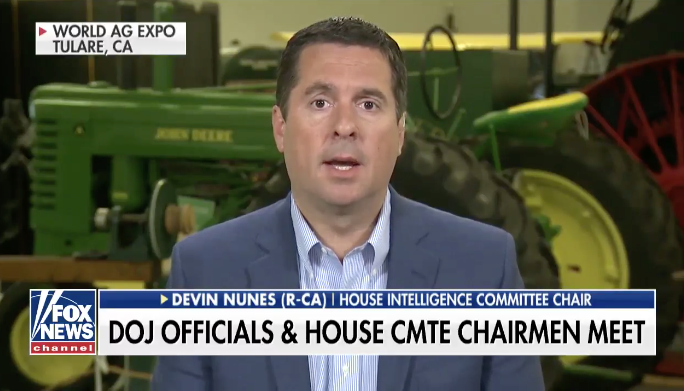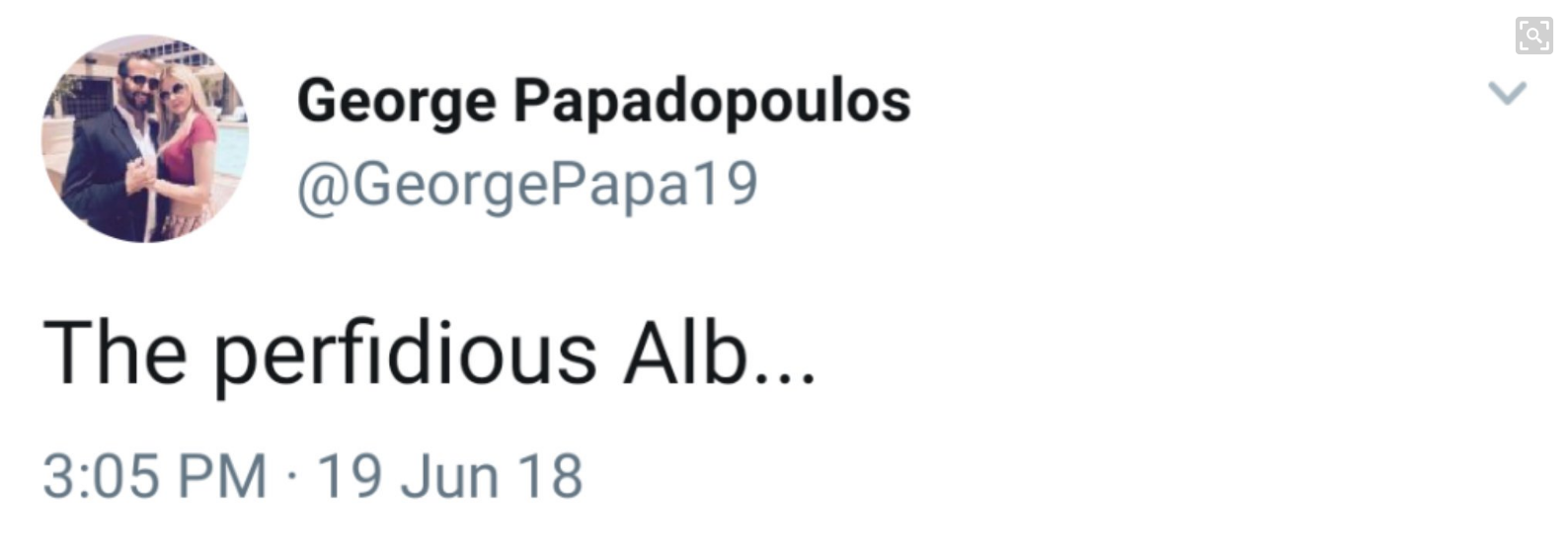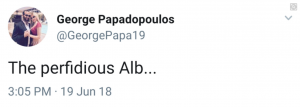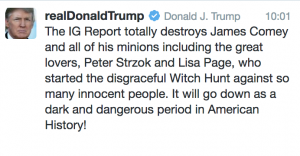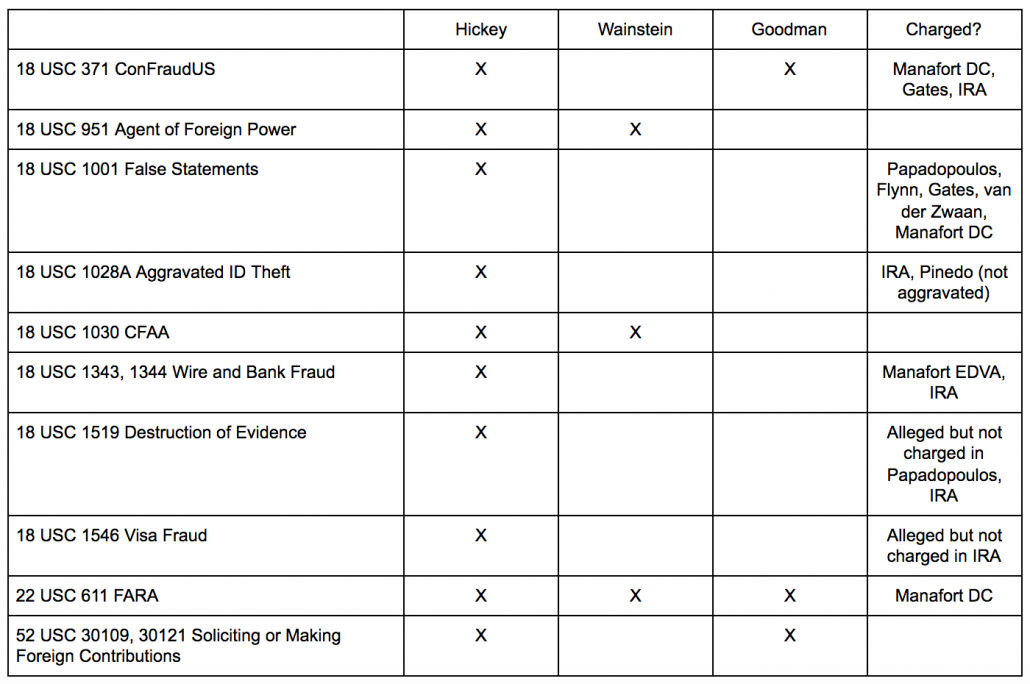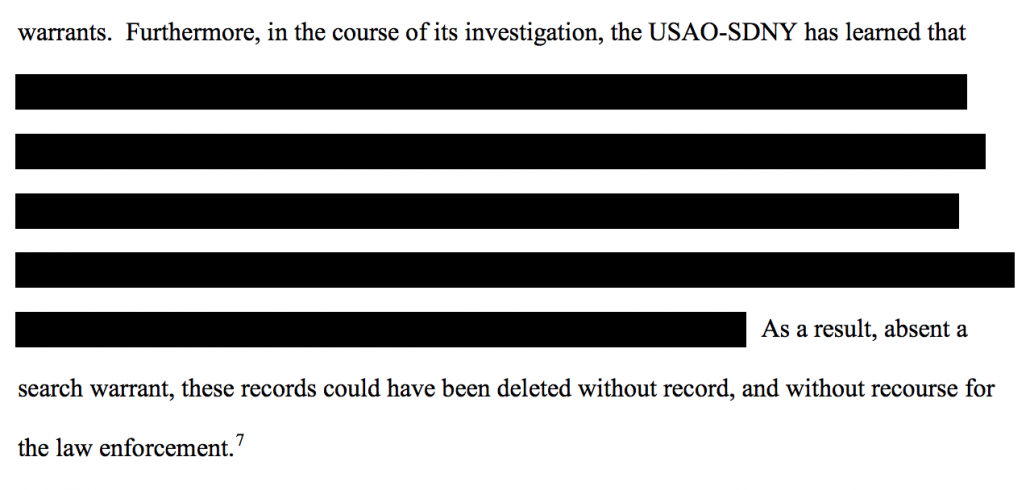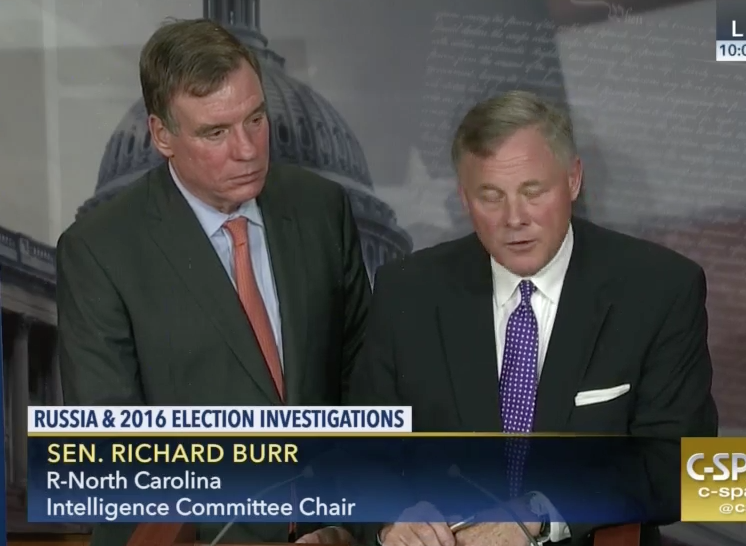How to Charge Americans in Conspiracies with Russian Spies?
As I laid out a few weeks ago, I provided information to the FBI on issues related to the Mueller investigation, so I’m going to include disclosure statements on Mueller investigation posts from here on out. I will include the disclosure whether or not the stuff I shared with the FBI pertains to the subject of the post.
In general, Jack Goldsmith and I have long agreed about the problems with charging nation-state spies in the United States. So I read with great interest his post laying out “Uncomfortable Questions in the Wake of Russia Indictment 2.0 and Trump’s Press Conference With Putin.” Among other larger normative points, Goldsmith asks two questions. First, does indicting 12 GRU officers in the US expose our own nation-state hackers to be criminally prosecuted in other countries?
This is not a claim about the relative moral merits of the two countries’ cyber intrusions; it is simply a claim that each side unequivocally breaks the laws of the other in its cyber-espionage activities.
How will the United States respond when Russia and China and Iran start naming and indicting U.S. officials? Maybe the United States thinks its concealment techniques are so good that the type of detailed attribution it made against the Russians is infeasible. (The Shadow Brokers revealed the identities of specific NSA operators, so even if the National Security Agency is great at concealment as a matter of tradecraft that is no protection against an insider threat.) Maybe Russia and China and Iran won’t bother indicting U.S. officials unless and until the indictments actually materialize into a trial, which they likely never will. But what is the answer in principle? And what is the U.S. policy (if any) that is being communicated to military and civilian operators who face this threat? What is the U.S. government response to former NSA official Jake Williams, who worked in Tailored Access Operations and who presumably spoke for many others at NSA when he said that “charging military/gov hackers is dumb and WILL eventually hurt the US”?
And, how would any focus on WikiLeaks expose journalists in the United States to risks of prosecution themselves.
There is a lot of anger against WikiLeaks and a lot of support for indicting Julian Assange and others related to WikiLeaks for their part in publishing the information stolen by the Russians. If Mueller goes in this direction, he will need to be very careful not to indict Assange for something U.S. journalists do every day. U.S. newspapers publish information stolen via digital means all the time. They also openly solicit such information through SecureDrop portals. Some will say that Assange and others at WikiLeaks can be prosecuted without threatening “real journalists” by charging a conspiracy to steal and share stolen information. I am not at all sure such an indictment wouldn’t apply to many American journalists who actively aid leakers of classified information.
I hope to come back to the second point. As a journalist who had a working relationship with someone she came to believe had a role in the attack, I have thought about and discussed the topic with most, if not all, the lawyers I consulted on my way to sitting down with the FBI.
For the moment, though, I want to focus on Goldsmith’s first point, one I’ve made in the past repeatedly. If we start indicting uniformed military intelligence officers — or even contractors, like the trolls at Internet Research Agency might be deemed — do we put the freedom of movement of people like Jake Williams at risk? Normally, I’d absolutely agree with Goldsmith and Williams.
But as someone who has already written extensively about the ConFraudUs backbone that Robert Mueller has built into his cases, I want to argue this is an exception.
As I’ve noted previously, while Rod Rosenstein emphasized that the Internet Research Agency indictment included no allegations that Americans knowingly conspired with Russians, it nevertheless did describe three Americans whose activities in response to being contacted by Russian trolls remain inconclusive.
Rod Rosenstein was quite clear: “There is no allegation in the indictment that any American was a knowing participant in the alleged unlawful activity.” That said, there are three (presumed) Americans who, both the indictment and subsequent reporting make clear, are treated differently in the indictment than all the other Americans cited as innocent people duped by Russians: Campaign Official 1, Campaign Official 2, and Campaign Official 3. We know, from CNN’s coverage of Harry Miller’s role in building a cage to be used in a fake “jailed Hillary” stunt, that at least some other people described in the indictment were interviewed — in his case, for six hours! — by the FBI. But no one else is named using the convention to indicate those not indicted but perhaps more involved in the operation. Furthermore, the indictment doesn’t actually describe what action (if any) these three Trump campaign officials took after being contacted by trolls emailing under false names.
On approximately the same day, Defendants and their co-conspirators used the email address of a false U.S. persona, [email protected], to send an email to Campaign Official 1 at that donaldtrump.com email account, which read in part:
Hello [Campaign Official 1], [w]e are organizing a state-wide event in Florida on August, 20 to support Mr. Trump. Let us introduce ourselves first. “Being Patriotic” is a grassroots conservative online movement trying to unite people offline. . . . [W]e gained a huge lot of followers and decided to somehow help Mr. Trump get elected. You know, simple yelling on the Internet is not enough. There should be real action. We organized rallies in New York before. Now we’re focusing on purple states such as Florida.
The email also identified thirteen “confirmed locations” in Florida for the rallies and requested the campaign provide “assistance in each location.”
[snip]
Defendants and their co-conspirators used the false U.S. persona [email protected] account to send an email to Campaign Official 2 at that donaldtrump.com email account.
[snip]
On or about August 20, 2016, Defendants and their co-conspirators used the “Matt Skiber” Facebook account to contact Campaign Official 3.
Again, the DOJ convention of naming makes it clear these people have not been charged with anything. But we know from other Mueller indictments that those specifically named (which include the slew of Trump campaign officials named in the George Papadopoulos plea, KT McFarland and Jared Kushner in the Flynn plea, Kilimnik in the Van der Zwaan plea, and the various companies and foreign leaders that did Manafort’s bidding, including the Podesta Group and Mercury Public Affairs in his indictment) may be the next step in the investigation.
In the GRU indictment, non US person WikiLeaks is given the equivalent treatment.
On or about June 22, 2016, Organization I sent a private message to Guccifer 2.0 to “[s]end any new material [stolen from the DNC] here for us to review and it will have a much higher impact than what you are doing.” On or about July 6, 2016, Organization 1 added, “if you have anything hillary related we want it in the next tweo [sic] days prefable [sic] because the DNC [DemocraticNationalConvention] is approaching and she Will solidify bernie supporters behind her after.” The Conspirators responded,“0k . . . i see.” Organization I explained,“we think trump has only a 25% chance of winning against hillary . . . so conflict between bernie and hillary is interesting.”
But the activities of other American citizens — most notably Roger Stone and Donald Trump — are discussed obliquely, even if they’re not referred to using the standard of someone still under investigation. Here’s the Roger Stone passage.
On or aboutAugust 15,2016, the Conspirators,posing as Guccifer 2.0,wrote to a person who was in regular contact with senior members of the presidential campaign of Donald J. Trump, “thank u for writing back. . . do u find anyt[h]ing interesting in the docs i posted?” On or about August 17, 2016, the Conspirators added, “please tell me if i can help u anyhow . . . it would be a great pleasureto me.” On or about September 9, 2016,the Conspirators, again posing as Guccifer 2.0, referred to a stolen DCCC document posted online and asked the person, “what do u think of the info on the turnout model for the democrats entire presidential campaign.” The person responded,“[p]retty standard.”
The Trump one, of course, pertains to the response GRU hackers appear to have made when he asked for Russia to find Hillary’s emails on July 27.
For example, on or about July 27, 2016, the Conspirators attempted after hours to spearphish for the first time email accounts at a domain hosted by a third‑party provider and used by Clinton’s personal office. At or around the same time, they also targeted seventy‐six email addresses at the domain for the Clinton Campaign.
Finally, there is yesterday’s Mariia Butina complaint, which charges her as an unregistered Russian spy and describes Aleksandr Torshin as her boss, but which also describes the extensive and seemingly willful cooperation with Paul Erickson and another American, as well as with the RNC and NRA. Here’s one of the Americans, for example, telling Butina that her Russian bosses should take the advice he had given her about which Americans she needed to meet.
If you were to sit down with your special friends and make a list of ALL the most important contacts you could find in America for a time when the political situation between the U.S. and Russia will change, you could NOT do better than the list that I just emailed you. NO one — certainly not the “official” Russian Federation public relations representative in New York — could build a better list.
[snip]
All that you friends need to know is that meetings with the names on MY list would not be possible without the unknown names in your “business card” notebook. Keep them focused on who you are NOW able to meet, NOT the people you have ALREADY met.
Particularly as someone whose communications (including, but not limited to, that text) stand a decent chance of being quoted in an indictment in the foreseeable future, let me be very clear: none of these people have been accused of any wrong-doing.
But they do suggest a universe of people who have attracted investigative scrutiny, both by Mueller and by NSD, as willing co-conspirators with Russian spies.
Granted, there are three different kinds of Russian spies included in these three documents:
- Uniformed military intelligence officers working from Moscow
- Civilian employees who might be considered intelligence contractors working from St. Petersburg (though with three reconnaissance trips to the US included)
- Butina and Torshin, both of whom probably committed visa fraud to engage as unregistered spies in the US
We have a specific crime for the latter (and, probably, the reconnaissance trips to the US by IRA employees), and if any of the US persons and entities in Butina’s indictment are deemed to have willingly joined her conspiracy, they might easily be charged as well. Eventually, I’m certain, Mueller will move to start naming Americans (besides Paul Manafort and Rick Gates) in conspiracy indictments, including ones involving Russian spies operating from Russia (like Konstantin Kilimnik). It seems necessary to include the Russians in some charging documents, because otherwise you’ll never be able to lay out the willful participation of everyone, Russian and American, in the charging documents naming the Americans.
So while I generally agree with Goldsmith and Williams, this case, where we’re clearly discussing a conspiracy between Russian spies — operating both from the US and from Russia (and other countries), wearing uniforms and civilian clothing –and Americans, it seems important to include them in charging documents somewhere.


